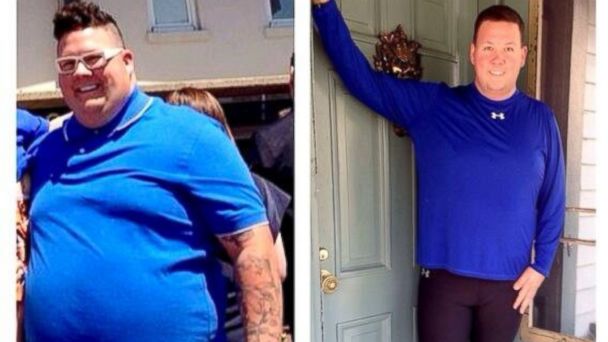Are you about ready to give up on weight loss? You're not alone. Whether it's
calorie
counting that you detest or the constant cravings that nag you, we've
finally found the solution: Stop forcing yourself to follow impossible
programs that just won't work for you. Instead, look for one that suits
your individual style.
"Diets aren't one size
fits all," says Joanne Larsen, R.D., a dietitian in Chicago. "When you
find a plan that matches your particular food preferences [likes and
dislikes] and lifestyle [cooking at home or eating out] it'll be easier
to stick with it and lose pounds." We've done the homework and found the
five best new diets out there. And we're convinced that one will work
for you.
Eat All Day Long: The Abs Diet for Women
Dining six times a day
(have a medium-size breakfast, lunch and dinner, plus a small snack two
hours after each) means you'll never go hungry on
The Abs Diet for Women,
by David Zinczenko (Rodale). The catch is each time you eat you need to
choose one or two of 12 "power foods," many of which are low in fat and
help build calorie-torching muscle. These foods spell out ABS DIET
POWER: Almonds (and other nuts), Beans (and legumes), Spinach (and other
greens), Dairy, Instant oatmeal, Eggs, Turkey (and other lean cuts),
Peanut butter, Olive oil, Whole grains, Extra protein (the whey powder
added to shakes) and Raspberries (and other berries). The program also
incorporates strength training for 20 minutes, three to four times a
week, with an emphasis on tightening your
abdominals. The thinking is that
getting rid of belly fat
can help you not only slim your waistline but also prevent disease. A
recent University of Alabama at Birmingham study reveals that "visceral
fat" around the middle is the single best predictor of heart-disease
risk.
Add Years to Your Life: The Bonus Years Diet
Expect to keep the
weight off and increase your longevity on
The Bonus Years Diet,
coauthored by Ralph Felder, M.D. (G.P. Putnam's Sons), by filling up on
the following: red wine (5 ounces daily), dark chocolate (2 ounces
daily), raw fruits and vegetables (4 cups daily), fish (three 5-ounce
servings weekly), garlic (one clove daily) and nuts (2 ounces daily).
"These foods are rich in antioxidants, flavonoids and phytochemicals,
all of which can help reduce your risk of heart disease by 76% by
lowering
blood pressure, cholesterol and inflammation throughout the body," says Dr. Felder. The rest of the diet? Totally up to you.
Make it a Team Effort: The F.A.S.T. Diet
The Deans (Sheila, Mike and their six kids) were a typical family in Omaha-until they overcame a lifetime of
weight
problems and lost a total of 500 pounds in one year. It began when
Tony, the family's oldest son, was inspired by the camaraderie he
witnessed on TV's weight-loss show The Biggest Loser. After doing some
online research he had family members calculate their basal metabolic
rate (BMR), an estimate of how many calories an individual needs to
function for one day. The BMR formula for women: [655 + (4.3 x current weight in pounds) + (4.7 x height in inches)] - (4.7 x age). The Deans then limited their
daily calorie
intake to 500 below their BMR numbers in order to drop about one pound
per week. Tony required them to log everything they ate, meet for weekly
weigh-ins, exercise every day and report to one another when they were
tempted to binge. The family also encouraged 100 others in Omaha to lose
more than 1,400 pounds in five weeks. Their success caught the eye of
Good Morning America and then Harmony Books, which published
The F.A.S.T. Diet (Families Always Succeed Together), written by Tony.
Squeeze it in to Your Hectic Life: The Busy Person's Guide to Permanent Weight Loss
If you're pressed for time, consider
The Busy Person's Guide to Permanent Weight Loss,
by Melinda B. Jampolis, M.D. (Thomas Nelson), which offers creative
tips on how to order better-for-you menu items at restaurants, pack
healthy on-the-go snacks and get more
exercise
in less time. You'll follow guidelines regarding what kinds of foods to
buy and what serving sizes are best, but you choose the foods to eat.
Slim Down Fast: The Fiber 35 Diet
The Fiber 35 Diet, coauthored by Brenda Watson (Free Press), is
strict, but if followed correctly, it can help you shed 8 pounds in the
first month, and then 1 pound each subsequent week. During phase one,
slash a whopping 1,000 calories from your typical daily intake for one
month (just don't dip below 1,200). From then on trim just 500 daily
calories until you reach your goal weight. The key is to eat a total of
35 grams of fiber daily. "Fiber is a natural appetite suppressant," says
Watson, a certified nutrition consultant in Dunedin, Florida. In other
words, you'll eat less but feel fuller.
Source: familycircle.com




























